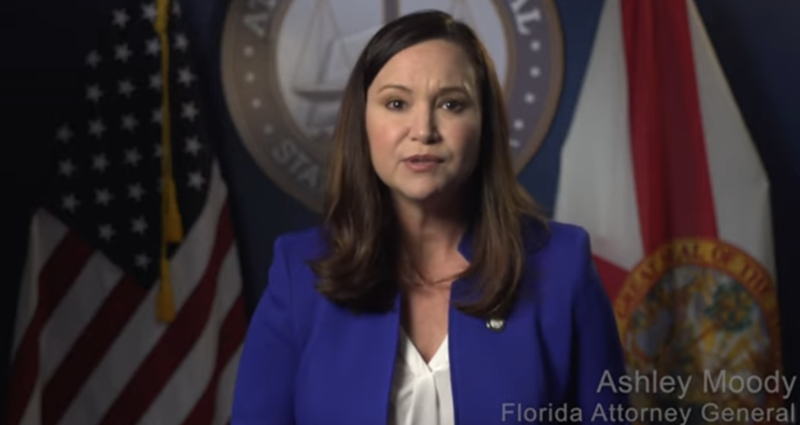After requesting citizenship status information about registered voters in Florida, and not receiving it from federal agencies as required by law, Florida sued.
In September, Florida requested information from the Department of Homeland Security and its subagencies about citizenship status of a subset of registered voters it identified and its request was denied.
One month later, a coalition of attorneys general, including Florida AG Ashley Moody, called on DHS Secretary Alejandro Mayorkas to provide the requested information, after multiple states, including Texas and Florida, also asked for similar information. They made the requests as multiple states also removed thousands of noncitizens from their voter rolls.
On Oct. 16, Moody sued Mayorkas and DHS in U.S. District Court Northern District of Florida Pensacola Division “for refusing to verify immigration records for the State of Florida to ensure voter-roll integrity.”
Under the Biden-Harris administration, millions of illegal border crossers “have flooded into the country,” Moody said. “Florida has an interest in ensuring that only American citizens are registered to vote. Recently, the state identified registered voters who may not be U.S. citizens, and DHS refuses to provide information necessary to determine their immigration status.” Moody sued “to ensure noncitizens are not on the voter rolls.”
“Voting is a right granted to American citizens – not illegal immigrants or other noncitizens,” she said.
The 16-page lawsuit cites federal and state law related to maintaining accurate voter registration records, federal government agencies’ legal requirement to ensure only citizens are voting in elections, among other provisions. “Because the federal government is refusing to comply with these obligations and frustrating Florida’s ability to maintain the integrity of its elections, Florida files this suit,” the lawsuit states.
Under DHS, U.S. Citizenship and Immigration Services (USCIS) uses the Systematic Alien Verification for Entitlements (SAVE) program to make immigration status information available to state agencies. The SAVE program was created to share information with federal, state and local agencies “for any legal purpose, such as credentials, background investigations, and voter registration,” the lawsuit says, citing information from the Federal Register.
Florida’s lawsuit follows more than a decade of litigation and interactions with DHS on the issue.
In 2012, Florida sued DHS requesting the court compel DHS to provide Florida with access to the SAVE program to verify voter immigration status. Florida was granted access and entered into a memorandum of agreement with DHS that allowed Florida to access SAVE program information.
“SAVE is a useful but inadequate tool that the State of Florida now uses to protect the integrity of its elections, with notable limitations,” Florida found, citing a range of problems with the program in the lawsuit. “SAVE cannot verify a benefit applicant’s status using a Social Security Number, driver’s license number, U.S. Passport number, foreign passport number, Consular Report of Birth Abroad or other non-DHS documentation,” it states.
Prior to suing DHS this time, Florida identified non-citizen registered voters but could not perform a search about them using the SAVE program because of its limitations. Last month, Florida requested USCIS to provide verification of citizenship status for the identified individuals, which it denied.
“Florida has identified a subset of individuals for whom it cannot verify citizenship or immigration status through SAVE and for whom DHS refuses to verify citizenship or immigration status through other means,” the lawsuit states.
The lawsuit requests the court to provide permanent injunctive relief, compel DHS to provide the requested information, and argues DHS and its subagencies are violating multiple federal laws, including the Administrative Procedure Act and the Immigration Reform and Immigrant Responsibility Act.
Other states like Texas requested similar information and didn’t receive it, The Center Square reported. Unlike Florida, Texas has yet to sue Mayorkas on this issue.






